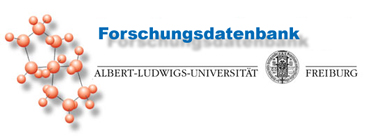| [Zurück zum Forschungsbericht] |
 |

Determination and functional characterisation of non-coding RNA in FOXG1-dependent forebrain development and atypical Rett syndrome
Projektbeschreibung:Rett syndrome is a neurodevelopment disorder with symptoms like progressive loss of cognitive capabilities, spastic paralysis, ataxia and epilepsy. Rett syndrome is classified under autism spectrum disorder (ASD). Classical Rett syndrome cases (~90%) are ascribed to MECP2 mutations, but FOXG1 haploinsufficiency results in similar phenotypes. Hence, the latter is called as atypical Rett or Rett-like syndrome. Recent studies suggest that expression of non-coding RNAs (ncRNA) is regulated by MECP2 as well as by FOXG1 and that the loss of this regulation may have an important role in disease progression. Molecular similarities between MECP2- and FOXG1-mediated Rett syndromes are yet to be deciphered. Therefore, in this project, we aim to systematically analyse the molecular parallels between loss of MECP2 and FOXG1 in the forebrain of mice with a special emphasis on ncRNAs (lncRNAs and miRNAs). MECP2- and FOXG1-deficient FOXG1 expressing cells will be generated to elucidate their functions in regulation of ncRNA biogenesis as well as in nervous system development and adulthood using parallel high throughput sequencing approaches. Further, to perform lncRNA and miRNA target predictions, as well as prediction and validation of transcriptional and post-transcriptional regulatory mechanisms, we intend to use interdisciplinary approaches involving the fields of bioinformatics, molecular biology, and biochemistry. The interplay of lncRNA and RNA-binding proteins (RBP) such as Polycomb members and other histone modifiers using RBP-CLIP and the interactions of ncRNA with either RNA and/or DNA will be studied in detail. To reveal the functional roles of ncRNAs during neurodevelopment and Rett syndrome, using loss and gain of function strategy, we will then study the effects on different pathways governing the most critical processes such as proliferation, survival and differentiation of neural stem cells/progenitors. The advantage of using different Rett syndrome mice models is that it not only allows us to understand the epigenetic roles of MECP2 and FOXG1 and the affected molecular pathways in Rett syndrome but also provides common targets that have therapeutic importance.Projektlaufzeit:
Ansprechpartner: Prof. Dr. Tanja Vogel
Tel: 0761/203-5087
Email: tanja.vogel@anat.uni-freiburg.de
Projektbeginn: 2014Projektleitung:
Projektende: (unbegrenzt)
Vogel TAktueller Forschungsbericht
Albert-Ludwigs-Universität Freiburg
Institut für Anatomie und Zellbiologie
Abteilung Molekulare Embryologie
Albertstr. 17
79104 Freiburg i. Br.
Telefon: ++49-761/203- 5087
Fax: ++49-761/203-5091
https://www.anatomie2.uni-freiburg.de